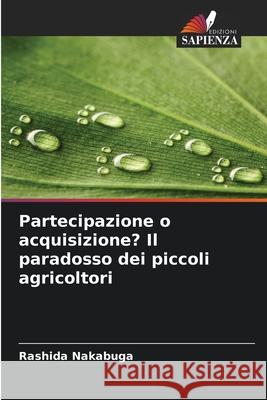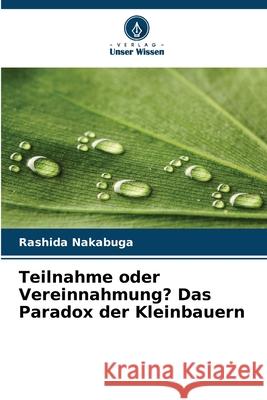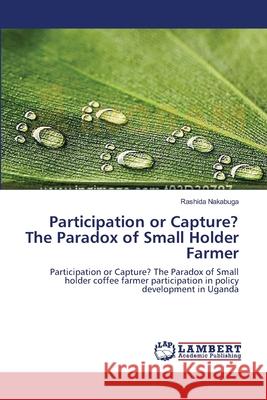topmenu
Wyniki wyszukiwania:
wyszukanych pozycji: 6
 |
Udzial czy przejecie? Paradoks drobnych rolników
ISBN: 9786202460361 / Polski / Miękka / 2025 / 64 str. Termin realizacji zamówienia: ok. 10-14 dni roboczych. |
cena:
178,47 |
 |
Participação ou captura? O paradoxo dos pequenos agricultores
ISBN: 9786202460378 / Portugalski / Miękka / 2025 / 64 str. Termin realizacji zamówienia: ok. 10-14 dni roboczych. |
cena:
178,47 |
 |
Participation ou captation? Le paradoxe des petits exploitants agricoles
ISBN: 9786202460347 / Francuski / Miękka / 2025 / 64 str. Termin realizacji zamówienia: ok. 10-14 dni roboczych. Il est essentiel de renforcer la participation des petits exploitants agricoles à l'élaboration des politiques pour s'attaquer à leurs problèmes réels. Mais cela peut s'avérer difficile en raison, entre autres, de leur faible capacité de négociation. Cet article soutient que pour être efficaces, les processus participatifs dans l'élaboration des politiques doivent tenir compte des différentes caractéristiques des agriculteurs qui semblent limiter et donc empêcher leur participation. L'étude a tenté de positionner la participation comme une théorie plus large et a illustré la...
Il est essentiel de renforcer la participation des petits exploitants agricoles à l'élaboration des politiques pour s'attaquer à leurs problèmes r...
|
cena:
178,47 |
 |
Partecipazione o acquisizione? Il paradosso dei piccoli agricoltori
ISBN: 9786202460354 / Włoski / Miękka / 2025 / 64 str. Termin realizacji zamówienia: ok. 10-14 dni roboczych. |
cena:
178,47 |
 |
Teilnahme oder Vereinnahmung? Das Paradox der Kleinbauern
ISBN: 9786202460323 / Niemiecki / Miękka / 2025 / 64 str. Termin realizacji zamówienia: ok. 10-14 dni roboczych. Die Stärkung der Beteiligung von Kleinbauern an der Politikgestaltung ist entscheidend für die Bewältigung ihrer tatsächlichen Probleme. Dies kann sich jedoch aufgrund ihrer geringeren Verhandlungsfähigkeit und anderer Herausforderungen als schwierig erweisen. In diesem Beitrag wird argumentiert, dass erfolgreiche partizipative Prozesse in der Politikgestaltung die unterschiedlichen Merkmale der bestehenden Landwirte berücksichtigen sollten, die als einschränkend angesehen werden und somit die Beteiligung behindern. Die Studie versuchte, Partizipation als umfassendere Theorie zu...
Die Stärkung der Beteiligung von Kleinbauern an der Politikgestaltung ist entscheidend für die Bewältigung ihrer tatsächlichen Probleme. Dies kann...
|
cena:
178,47 |
 |
Participation or Capture? The Paradox of Small Holder Farmer
ISBN: 9783659548451 / Angielski / Miękka / 2015 / 72 str. Termin realizacji zamówienia: ok. 10-14 dni roboczych. Enhancing small holder farmer participation in policy development is critical in tackling their real issues. But this can prove difficult because of their less capacity to negotiate among other challenges. This paper argues that successful participatory processes in policy development should be mindful of existing farmers' different characteristics that are seen to shape limitations and thereby blocking participation to occur. The study attempted to position participation as a broader theory and illustrated capacity and empowerment as key elements to enhance participation of small holder...
Enhancing small holder farmer participation in policy development is critical in tackling their real issues. But this can prove difficult because of t...
|
cena:
178,47 |










